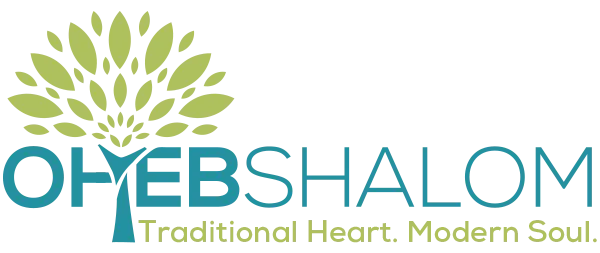Antisemitism is a shape-shifter. Right now, its form is anti-Zionism. This is what is top of mind for me right now. I just learned something new: that it was the Soviet propaganda machine that first swapped the word “Zionist” for “Jew.” The blood libel, the accusation of dual loyalty, the myth of secret power? The Soviets made it all about Zionists instead of using the J-word. In a post-Holocaust world, in which saying things about Jews was no longer in good taste, the rebrand stuck. If you’re going to click through to anything here to read next, that’s the one. Unless you read this one instead: Why This Was the Worst Week in Antisemitism – Until Maybe Next Week. (Look what I just did there: sent you to both the right-leaning Tablet and left-leaning Forward. Turns out being a purple congregation is irrelevant when it comes to this topic.)
This week, I spent two days with 125 rabbis at a conference on Zionism and what this moment requires of our leadership. My thoughts, ideas, and learning filled an entire notebook. The first draft of this blog can be found here; it is the actual list of the Top 12 Things I Learned about Zionism This Week. I wrote it yesterday, and by the time I went to bed, I knew I wouldn’t send it. Because the heart of matter is not the list of facts or actually about Zionism or Israel at all.
The heart of the matter is this: the shape-shifted antisemitism of our day is now dressed up as a principled, moral social justice stance about Middle East politics; it is actually the rejection of Jews and Jewish concerns in our own nation. To be sure, there is also the old-school white nationalist Jew-hate as well, but that we know how to wrap our heads around. This Zionism thing feels new and has us spinning in all the wrong ways, because it is a distraction from the heart of the matter. The heart of the matter are the questions which right now are everything for towns like ours, the questions we must keep bringing the conversation back to over and over again: What does racial justice and inclusion look like in towns like ours – in an America – that combines Palestinians and Israelis, Jews and Muslims, and people of a wide range of commitments and ideas? In what ways are Zionists valued and treasured in this mix?
When God calls to Moses from the burning bush and tells him to go save the Jewish people, Moses resists. Moses argues that the people will never listen to him, that he’s slow of speech, that it will never work. Which, as Rabbi J.J. Schachter taught us in a hotel conference room this week, is nuts, since the only reason Moses was out there in the desert tending Yitro’s sheep in the first place was because he himself saw the suffering of the Israelites, killed a man who was beating a Jew, and then fled the scene. So he knows the people are suffering. Dear God, he says, don’t send me! According to the Talmud, Moses spent a whole week arguing with God, that God should send Elijah the Prophet to save the Jews instead.
What about us? We (and at this point Rabbi Schachter had worked himself up, shouting so loudly that security actually came in to check in on things) must argue not just for a week, but for all eternity that God help us, that God should send Elijah, that God should redeem us, bring back the hostages, end the suffering, end the war, over and over again, for all eternity, that is our role as Jews. To insist that God show up and do god-like things. But God refused, and God refuses. Instead, God sent Moses. Eventually Moses got the message that it was up to him. Now it is our turn. It is up to us.
